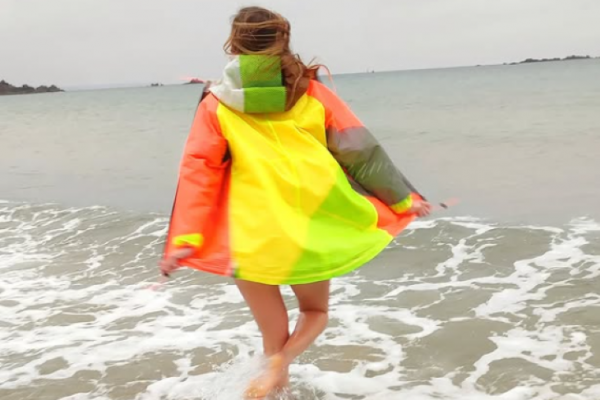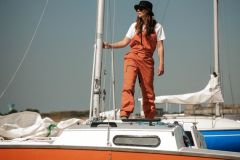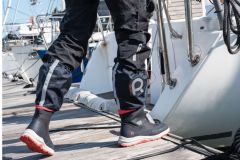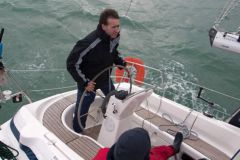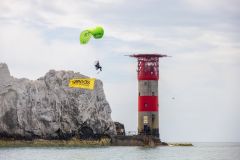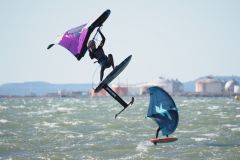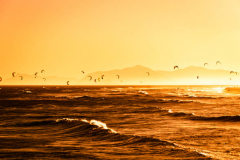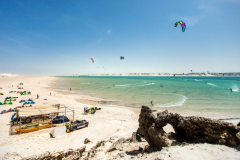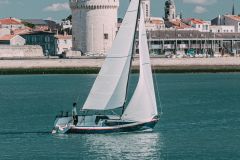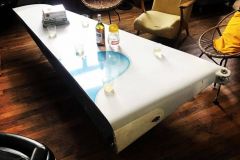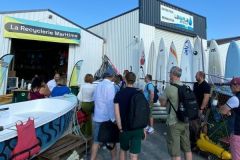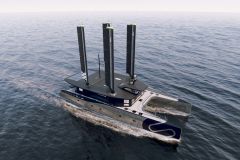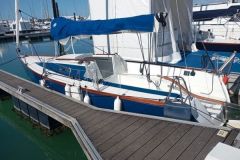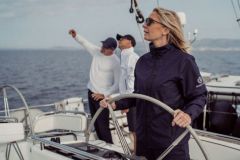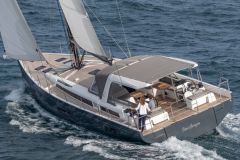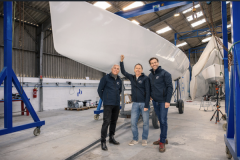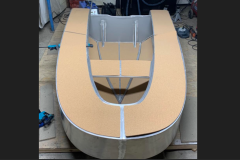In the world of board sports, decommissioned sails rarely get a second chance. Damaged by wind or worn by time, they often end up forgotten in a corner of a garage. Élodie Gryba, founder of the Rinkin brand, has taken the problem head-on. This Saint-Malo resident, herself a kitesurfer, has come up with an original solution: reuse these materials to create technical clothing and practical accessories. The idea is based on a simple conviction: the richness of the sea can be combined with an eco-responsible approach, even when the equipment becomes unusable while sailing.
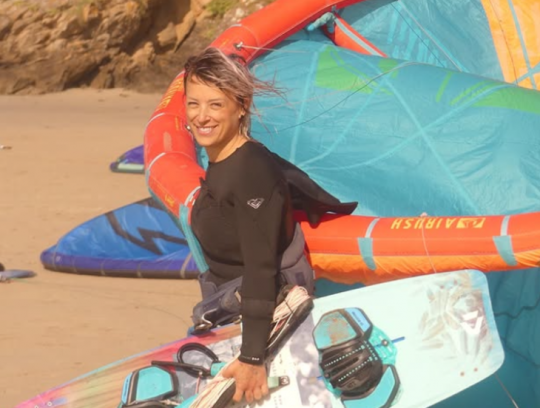
Spinnaker, the ideal material for customized creations
The spinnaker cloth used in kitesurfing is a material of choice. Lightweight, wind-resistant and waterproof, they are ideal for making windproof jackets. With the help of Sorya MoBé, a professional pattern maker, Élodie Gryba created prototypes integrating up to twenty parts, including the lining. Customization, the cornerstone of her concept, allows customers to choose from a wide palette of colors to create pieces that reflect their tastes and style, while preserving the authenticity of the original material.
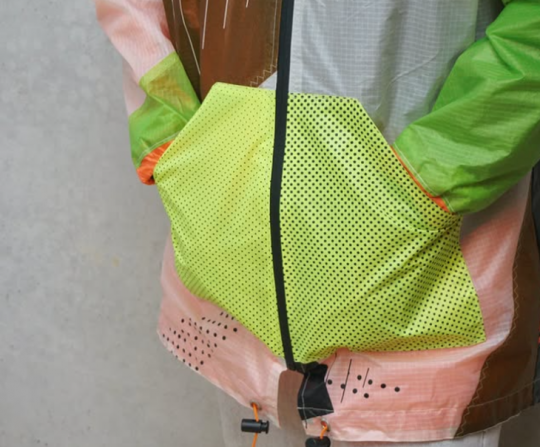
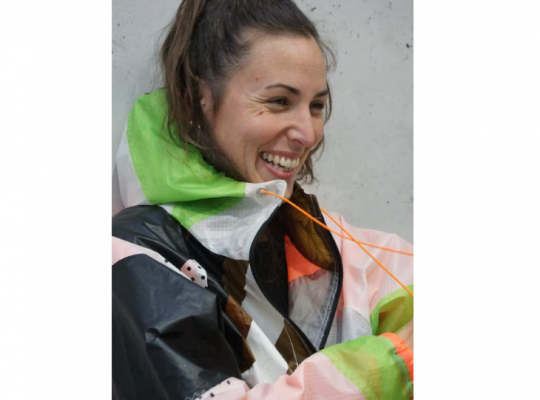
A circular approach
The Rinkin project is fully in line with the logic of the circular economy. Thanks to appeals launched on social networks, Élodie has already collected numerous sails donated by kitesurfing enthusiasts who prefer to give away their equipment rather than see it deteriorate unnecessarily. She also plans to recover off-cuts from sail manufacturers to further reduce the ecological footprint of her production. In addition to jackets, the designer also plans to produce accessories such as fanny packs and surfboard covers.
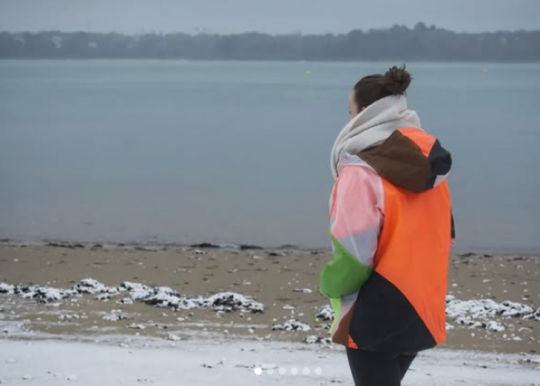
A history rooted in the Breton coastline
The name "Rinkin", which means "shark" in Breton, is a tribute both to Élodie's attachment to her region and to the lasting impression left by the sharks she encountered during her travels in Australia and the Fiji Islands. Arriving in Brittany in 2019 after a city life in Lyon, she found new inspiration in the Malouin coastline. The sea is omnipresent in her project.
By settling in Pleudihen-sur-Rance, the young woman has also transformed her workshop into a space where sea and sports enthusiasts can discover her creative process. The space reflects another of her passions: tattooing, an activity she pursues in parallel.
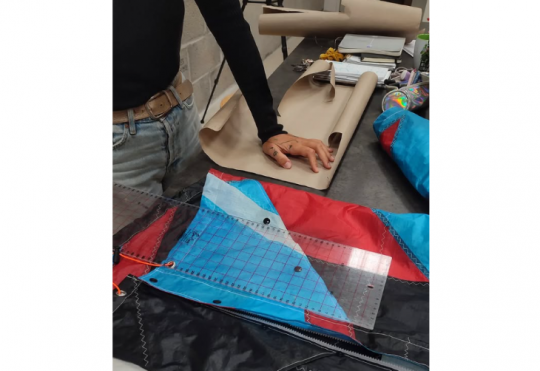
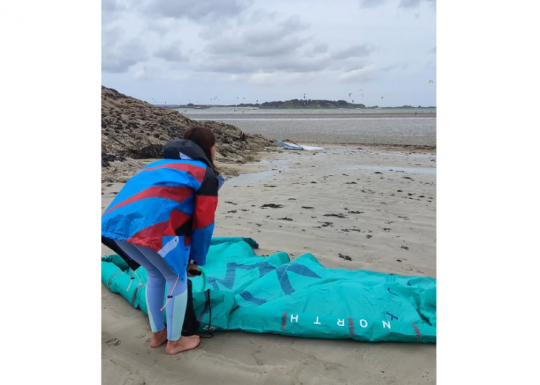
Towards eco-responsible nautical fashion
The first Rinkin jackets are scheduled to go on sale in the first half of 2025, produced in small batches to guarantee the uniqueness of each piece. Prices, still being assessed, will reflect both the handcrafted quality and the recovery effort behind each garment.

Élodie Gryba's initiative illustrates a growing trend in the world of boating: giving value to decommissioned materials and giving them a new function. Whether in crafts, architecture or fashion, the recycling of elements from water sports is resonating with lovers of the sea and sustainable innovation.
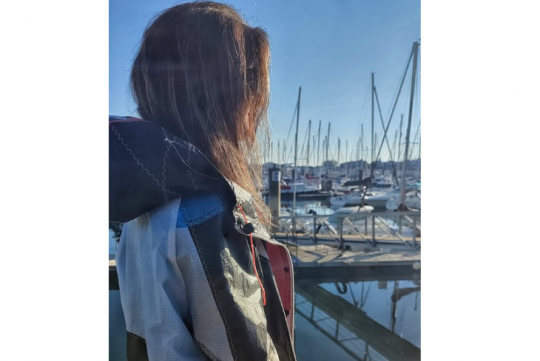

 /
/ 